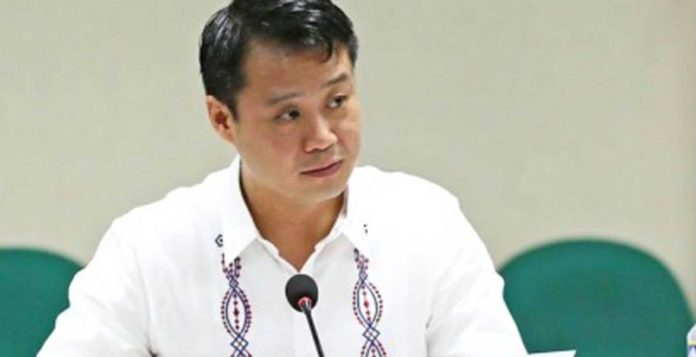Senator Win Gatchalian urged the Department of Education (DepEd) to ensure the continued education of learners with disabilities or special needs in the roll-out of its Learning Continuity Plan (LCP) for school year 2020-2021. Gatchalian said that addressing the needs of these learners would prevent them from dropping out.
While DepEd is set to utilize alternative learning delivery modalities such as online learning, radio, television, and printed packets for learners without gadgets and connectivity during this time of the pandemic, Gatchalian said that these should also be available in formats that are conducive to learners with disabilities.
Printed learning packets, for example, can be made available in braille or as audiobooks for visually impaired learners, Gatchalian suggested. Sign language interpreters should also be tapped for television-based instruction, he added.
Under the Filipino Sign Language (FSL) Act (Republic Act 11106), which Gatchalian co-authored, government, schools, and media are mandated to use FSL when relating to the deaf in the Philippines. The FSL Act also requires news and public affairs programs to have FSL interpreter insets.
Gatchalian added that DepEd should work with local government units (LGUs) to ensure that learners with disabilities have access to health care services and therapies. He emphasized that the input of health professionals, including developmental pediatricians, is important in the formulation of individualized education plans (IEP), which identifies the learners’ academic goals and how they can be achieved.
Teachers and parents of learners with disabilities should also be supported, Gatchalian said. Teachers, he emphasized, should be adequately trained on how to remotely support learners while parents should be prepared for homeschooling. The senator said that without adequate preparation, these new learning environments could inflict a heavy burden and emotional toll on both teachers and parents.
The Philippine Health Insurance Corporation (PhilHealth) estimates that there are around 5.1 million Filipino children living with disabilities. Data from DepEd’s Learners Information System revealed that in 2018, there were 231,631 learners with disabilities enrolled in special classes and who were not integrated in regular classrooms.
On the other hand, a discussion paper in December 2017 of the Philippine Institute for Development Studies (PIDS) said that a significant proportion of Filipino children with disabilities were not able to go to school either because of financial challenges faced by households or lack of access to educational facilities, such as SPED centers and qualified teachers.
Last year, Gatchalian filed Senate Bill No. 171 or the Inclusive Education for Children and Youth with Special Needs Act, which aims to establish Inclusive Education Learning Resource Centers in all public schools divisions that will boost capacity-building on inclusive education and disability awareness.
“Sa pagpapatuloy ng edukasyon sa gitna ng krisis sa COVID-19, lalong dapat nating tutukan ang mga mag-aaral na may kapansanan at siguruhing hindi sila maiiwan. Kailangang matiyak at maiparating natin sa mga naturang mag-aaral at kanilang magulang na mananatili silang ligtas sa pagpapatuloy ng kanilang pag-aaral,” said Gatchalian.






